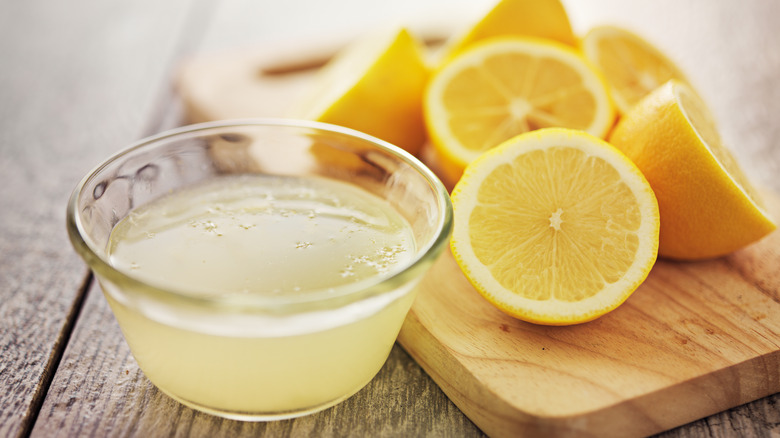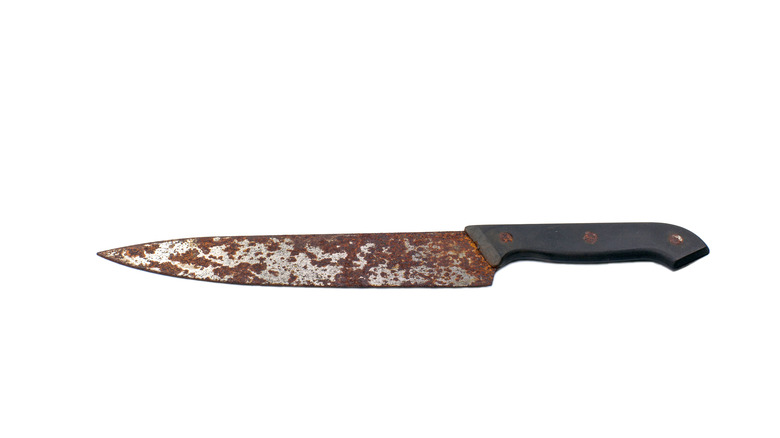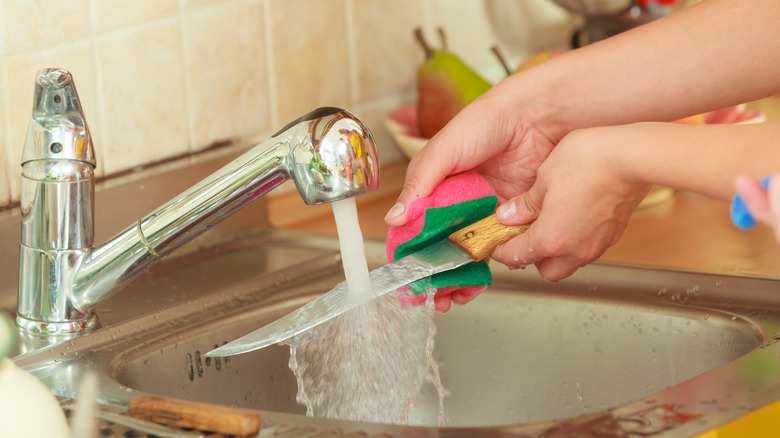Lemon Juice Is The MVP For Rust-Free Kitchen Knives
Rust is a naturally occurring, scientific phenomenon that can form on metal when it's exposed to oxygen and moisture. It has long caused discoloration and degradation of many common utensils and gadgets. When it comes to cooking and serving utensils in particular, rust especially can be prevalent in knives, including the three needed in your kitchen arsenal.
While rust might crop up in an assortment of frequently used tools, that doesn't mean it has to stay. There are a number of hacks that have been tried and tested over the years to rid rust and its unpleasant reddish-brown appearance. Lemon juice, coupled with salt, is one such remedy.
There are several benefits to a lemon juice and salt combination, including a more natural, eco-friendly option that can function as a substitute for chemical treatments and also a safer option to preserve the integrity of the utensil. Lemon's generally pleasant, refreshing fragrance also can add a nice touch as rust is being removed from a knife.
Lemon juice and salt are a potent combo for rust
Lemons, by their very nature, are acidic. This key feature makes them an ideal antidote for rust because acid has the ability to separate, or remove, the compound from the knife. Based on its makeup, lemon juice acts as an agent that can directly lift the rust off the metal underneath it.
Only a bit of juice is needed to do the trick, meaning one lemon can go a long way in tackling rust. Though it may be helpful to know the maximum amount of juice you can get from one lemon ultimately depends on its size. A small-sized lemon typically can squeeze out 2-3 tablespoons of juice. A larger lemon, by contrast, can result in upward of 5 tablespoons of juice.
Salt also works as an ideal complement to lemon juice as it can be a mild abrasive to help rid residue. Because of its gritty texture, salt acts as a buffer to lemon's harsher features, reducing the likelihood of scratching. For best results, mix the salt and lemon juice together in a container and dip a gentle scrubbing pad into the concoction before applying it to rusted areas of the knife.
How to avoid rust in the first place
One of the best, foolproof ways to prevent rust from forming on kitchen knives in the first place is to remove any drops of water as quickly as possible after washing the utensils. After thoroughly cleaning to remove food and residue, use a cloth or towel to wipe them completely dry. Doing so will prevent the scientific reaction of moisture from collecting for a prolonged period of time; that alone will cut down on the likelihood of rust forming.
It also is important to consider where utensils are stored in the fight against rust. Keeping knives and other kitchen essentials in dry areas, with low or no humidity, will reduce this likelihood. Helpful gadgets, such as knife blocks and magnetic holders, are great as they act as moisture-free storage solutions and keep the essential tools in tip-top shape for the next time a meal is being prepared.



